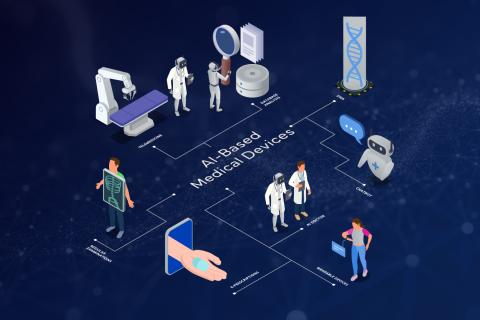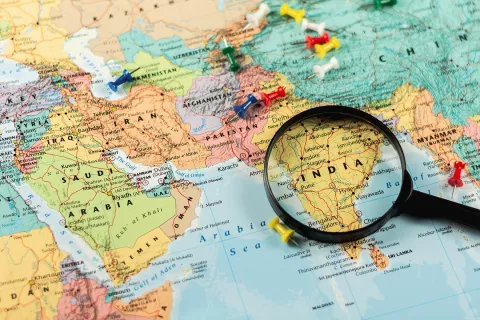
Medical device manufacturers must complete the Gulf Cooperation Council (GCC) medical device registration process to sell their products in Bahrain, Kuwait, Oman, Qatar, Saudi Arabia, and the United Arab Emirates (UAE). The registration procedure ensures that the medical devices sold in these countries adhere to the essential quality and safety requirements as well as the relevant regulations. The registration procedures in the GCC nations may differ from one country to another. However, generally, all the procedures involve submitting an application containing details about the product and manufacturing methods. The Regulatory authorities then assess the application and may seek further details or order the manufacturer to carry out additional research or testing to support the safety and efficacy of the device.
Regulatory Framework for Medical Devices in GCC Countries
The Regulatory framework for medical devices in GCC countries is overseen by the national health authorities of each country, who are responsible for setting and enforcing regulations and requirements for medical device registrations and market access. However, these countries also work together through the Gulf Central Committee for Drug Registration (GCC-DR) to harmonize Regulatory requirements and facilitate the registration process for medical devices.
The GCC-DR is an organization composed of representatives from the national health authorities of each GCC country. Its main agenda is to establish standards and guidelines for the registration of pharmaceuticals and medical devices and to coordinate the registration process across the member countries.
The GCC-DR has developed a common set of Regulatory requirements, known as the Gulf Harmonization Technical Committee (GHTC) guidelines, to ensure that medical devices are sold in the GCC countries. The GHTC guidelines cover various aspects of medical device registration, such as classification, documents, clinical evaluation, and labeling. They also provide a framework that manufacturers can follow when submitting applications for registration in the GCC countries.
Significance of Device Classification under the Medical Device Nomenclature (MDN) and Global Medical Device Nomenclature (GMDN)
The classification of medical devices is a vital aspect of the Regulatory process, as it determines the level of Regulatory control required over a particular device. The Regulatory requirements for medical devices in GCC countries alter depending on the classification of the device. The GCC countries use the Medical Device Nomenclature (MDN) established by the GCC Central Registration Committee as the basis for classification. In addition to the MDN, the Global Medical Device Nomenclature (GMDN) is used as an ancillary classification system in GCC countries. The GMDN is an internationally recognized system that provides a standardized way of identifying and categorizing medical devices.
Types of Technical Documentation Required
To register a medical device in GCC countries, manufacturers and importers are required to submit a comprehensive set of technical documentation to the national health authorities of each country. This documentation is used by the respective authorities to evaluate the safety and efficacy of the device and to determine whether it meets the relevant Regulatory requirements. The types of technical documentation required for medical device registration in GCC countries typically include the following:
- Design and Performance Data: This provides a detailed description of the device’s design, including its intended use, specifications, and performance characteristics. It should also include relevant information on any testing or clinical trials conducted to demonstrate the device’s performance and safety.
- Safety Data: This provides a comprehensive assessment of the risks associated with the device, as well as information on any risk management measures that have been implemented to mitigate these risks. It should also include data on any adverse events reported for the device.
- Labeling and Instructions for Use: Documentation should include all labeling and instructions for the use of the device, including any warnings or precautions that need to be taken into account while using the device. The labeling and instructions should be provided in the official language of the country where the device is being registered.
- Quality Management System Documentation: This provides evidence of the manufacturer’s quality management system and its compliance with international quality management standards such as ISO 13485. It should also include information on the manufacturer's processes with regard to design, development, manufacturing, and post-market surveillance.
- Other Documentation: Additional documentation may be required, depending on the type of device and the specific Regulatory requirements of the country where the device is being registered. This may include clinical trial data, device history files, and certificates of analysis for any materials or components used in the device.
Local Authorized Representatives and their Specific Responsibilities
In GCC countries, medical device manufacturers based outside the region are required to appoint a local authorized representative to act on their behalf. The representative is responsible for ensuring that the manufacturer’s products comply with the relevant Regulatory requirements and that they are registered and approved for sale in the GCC market. Their main roles and responsibilities are as follows:
- Medical Devices Registration: Responsible for submitting the registration application for the medical device to the relevant Regulatory authority in the GCC country.
- Interaction with Regulatory Authorities: Serves as the main point of contact between the manufacturer and the Regulatory authorities in the GCC country.
- Regulatory Requirement Compliance: Responsible for ensuring that the manufacturer’s products comply with the relevant Regulatory requirements in the GCC country, including labeling and instructions for use.
- Adverse Events Handling: Responsible for handling and reporting adverse events associated with the manufacturer’s products in the GCC market.
- Registration Renewal: Responsible for ensuring that the manufacturer's products are re-registered with the relevant Regulatory authorities in a timely manner.
Fees Associated with Registration
Depending on the country and the type of device being registered, the registration fees for medical devices vary from country to country across GCC nations. The Regulatory authority in the particular country where the registration is being undertaken usually levies the fees.
In addition to the registration fees, the costs of complying with Regulatory requirements, such as those related to technical documentation, clinical data, quality management systems, labeling, and usage instructions, may be incurred by manufacturers and importers. Both the intricacy of the device and the Regulatory requirements in the GCC countries can have a significant impact on these costs.
For more information, contact Freyr Regulatory experts.









